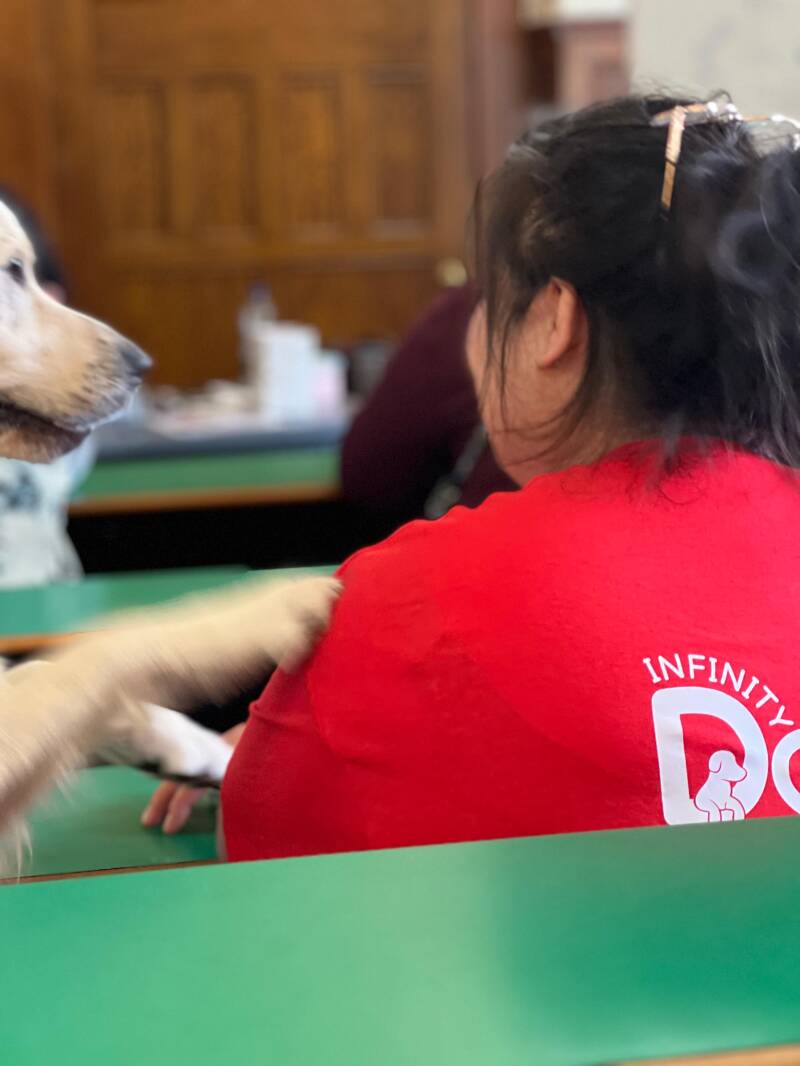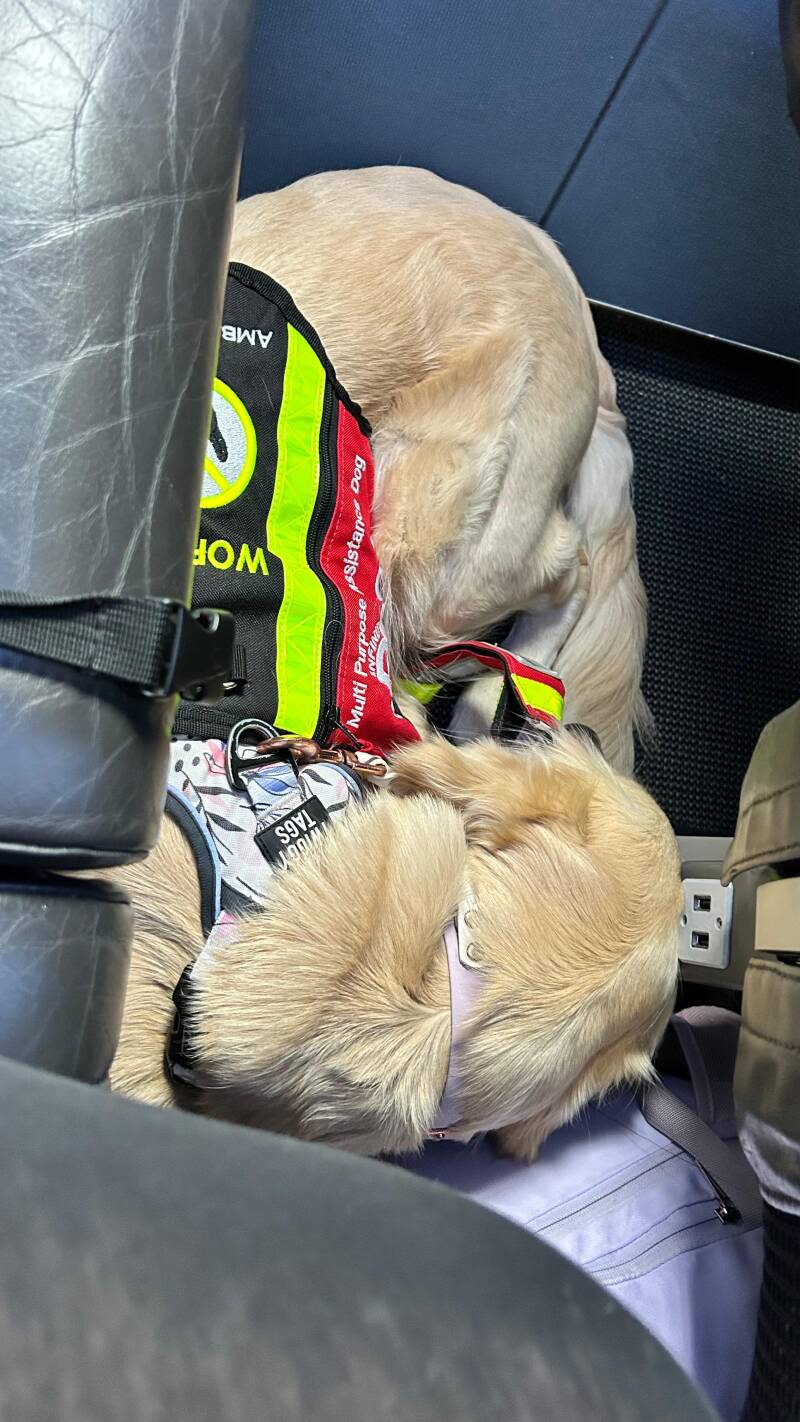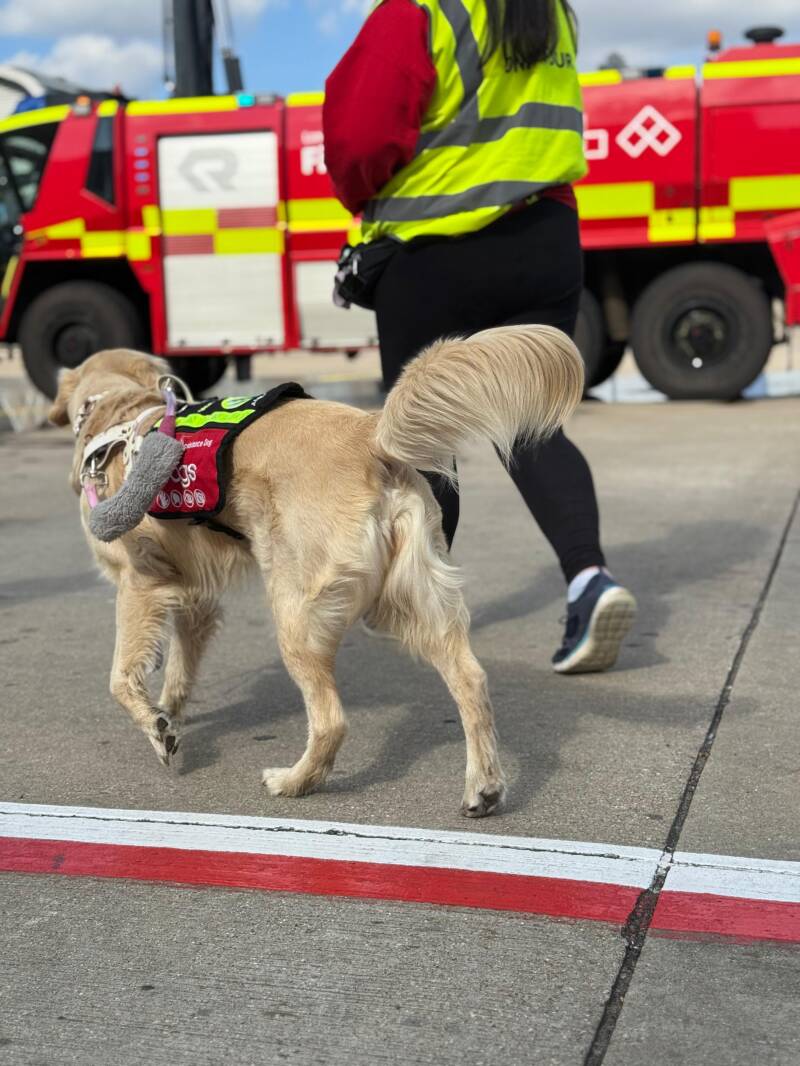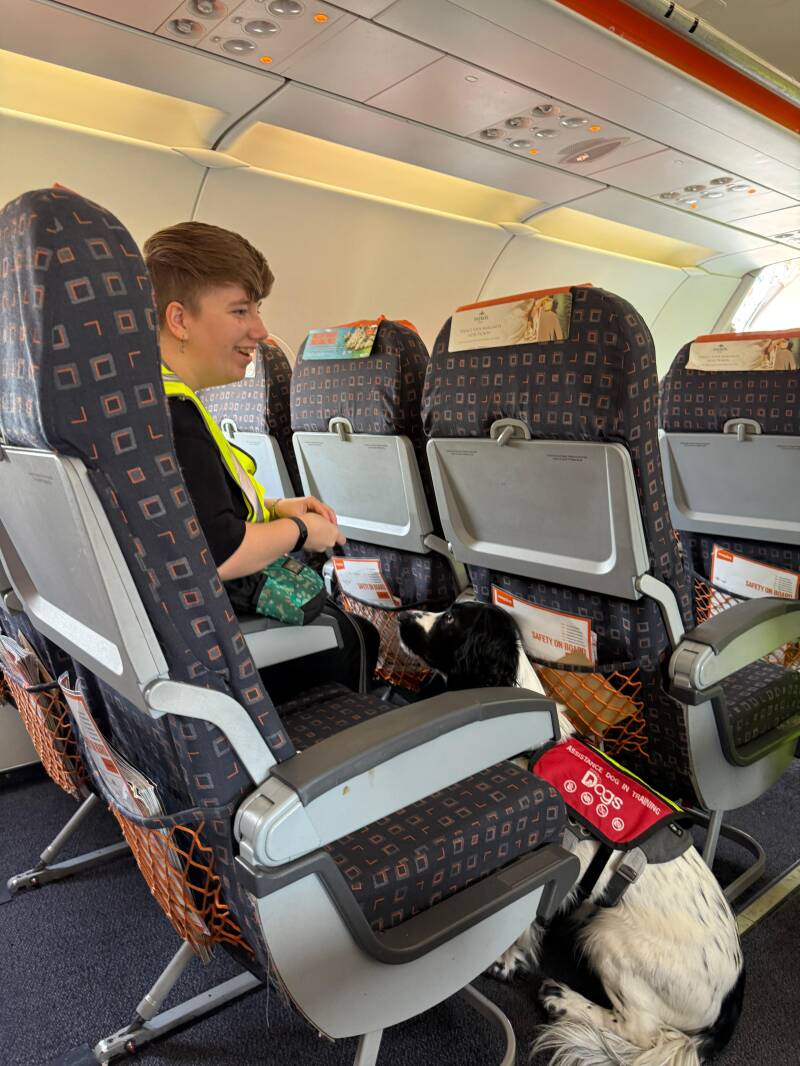

Our Assistance Dog Programme is unique in that we support owner training for ALL KINDS of disabilities. We believe that everyone should have the opportunity to experience the joy of having a well-trained dog, regardless of their disability status. We will help where we have capacity to do so and feel we can safely and properly support you, but we will place special priority on those that are autistic/neurodivergent over 8 and those with multiple and complex disabilities.
We take your dog’s needs seriously so we can meet yours, and are 100% committed to only using force-free training methods. We train using a mixture of environments including private venues, public access, scenario-based settings, and give support at home as well. Our thorough application process ensures that we are the best fit for you and your potential Assistance Dog. The only Assistance Dog training we do not provide is for clients with sight loss as the sole disability, or anaphylactic allergen detection.
We do not take on breeds that are considered illegal, nor any bull breeds and do not recommend brachycephalic breeds – see Dog Selection below.
We are proud to be different from most Assistance Dog organisations and dog sport schools, and strive to make a positive impact to the lives of disabled individuals and their dogs.

Is our training right for you and your dog?
At Infinity Dogs CIC, our primary goal is to provide safe and effective assistance to individuals with a wide range of disabilities and mental health needs. We prioritize those who are Autistic/neurodivergent, have complex and multiple disabilities, or are medical zebras not currently supported by any other organisation providing or training assistance dogs. The majority of our partnerships will involve training multi-purpose Assistance Dogs.

If you are interested in accessing our training for yourself and your dog please read:


The Application Process
We have a multi-stage process to ensure that our partnership is a good fit for both parties. Here is an overview of each stage:
Stage 1: Website Evaluation We encourage you to visit our website to determine if we align with your goals and values as a partnership.
Stage 2: Remote Application This stage involves assessing whether you are a suitable candidate for our programme. We will evaluate if we can provide the necessary support for you to train your own Assistance Dog. Additionally, we will ensure that you have the appropriate resources to meet our rigorous training standards and maintain high welfare standards.
Stage 3: Virtual Open Day This stage aims to provide you with a comprehensive understanding of our training and assessment process. It also gives you an opportunity to ask any questions you may have before proceeding further.
Stage 4: Behavioral Screening Stage 1 If possible, one of our volunteer behaviour specialists in your local area will meet with you briefly to conduct a short assessment. This assessment will determine if your dog is likely to enjoy assistance work and does not pose any obvious safety risks.
Stage 5: Behavioral and Training Screening Stage 2 This stage focuses on evaluating your commitment to the training programme and your dog’s potential and suitability for training.
Stage 6: Veterinary Screening In this stage, we will request that your vet complete a short form to confirm that your dog is in good health and capable of performing the required tasks. Additionally, we will verify that you have health insurance and public liability insurance for your prospective Assistance Dog. If you pass this stage, we will provide you with some simple training exercises for your next assessment.
If you and your dog are assessed to be suitable potential partners, you will be invited to join the Foundation Stage of our Assistance Dog training pathway. To apply, please fill in the application form.


I didn’t like or want to go anywhere and if I did I had to have someone with me as I had no confidence and was worried what would happen if I fell or passed out. Having my dog with me has given me the freedom to start going out again and living a little better quality of life. As it’s still at the beginning of our training I don’t push him to do everything he will be doing in another 8 months time. Go for it and embrace the new chapter of your life!
Assistance Dog Handler
Your training questions answered


Assistance Dog Law in the UK

The UK law on Assistance Dogs is covered by the Equality Act 2010.
This law states that disabled people have the right to be accompanied by their Assistance Dog in public places, including shops, restaurants, hospitals, and on public transport.
Assistance Dogs are not considered pets and are recognised as an auxiliary aid. The Equality Act 2010 defines an auxiliary aid as “anything that provides support or assistance to a disabled person”. This includes Assistance Dogs, which are trained to perform practical assistive tasks/behaviours for their disabled partners, or alert to life-threatening medical conditions to enable their owners to live more independent lives.




